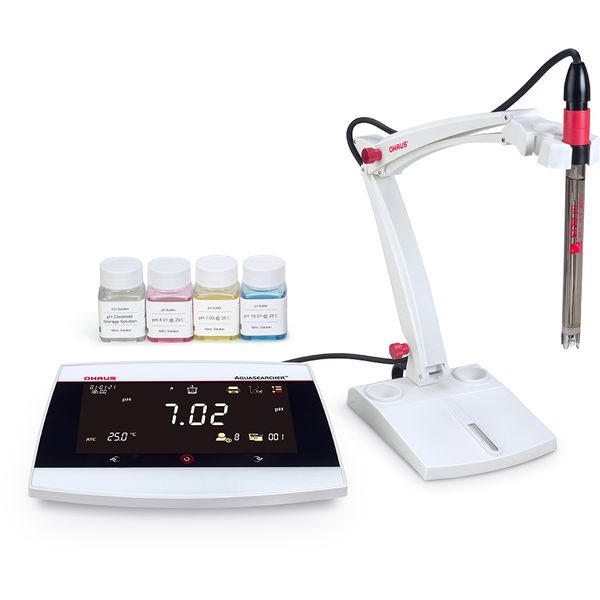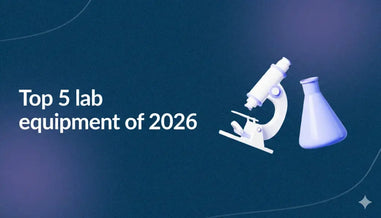- No products in the cart.
Water quality is a critical factor in various industries, from agriculture to pharmaceuticals. Monitoring and maintaining water quality require precise instruments, and water analysis meters play a crucial role in this process. Whether you're a researcher, a facility manager, or an environmentalist, choosing the right water analysis meter is essential for accurate and reliable results. In this comprehensive guide, we'll explore the key factors to consider when selecting a water analysis meter and delve into the proper usage to ensure optimal performance.
Understanding Water Analysis:
Before delving into the intricacies of water analysis meters, it's crucial to understand the parameters they measure. Common parameters include pH, conductivity, dissolved oxygen, turbidity, and chemical concentrations. Each parameter provides insights into different aspects of water quality, such as acidity, salinity, and the presence of contaminants. The choice of a water analysis meter should align with the specific parameters relevant to your application.
Types of Water Analysis Meters:
-
- pH is a measure of the acidity or alkalinity of a solution.
- pH meters are essential for applications like agriculture, aquaculture, and water treatment.
- Choose a pH meter with high accuracy and a wide measurement range for versatility.

-
- Measure the ability of water to conduct an electrical current, indicating the concentration of ions.
- Critical for assessing the salinity of water and monitoring nutrient levels in agricultural settings.
- Consider factors such as range, accuracy, and temperature compensation when selecting a conductivity meter.
-
- Measure the amount of oxygen dissolved in water, crucial for aquatic ecosystems and wastewater treatment.
- Opt for meters with quick response times, temperature compensation, and durability for field applications.
-
Turbidity Meters:
- Measure the cloudiness or haziness of a fluid caused by large particles.
- Essential for evaluating water clarity in environmental monitoring and drinking water treatment.
- Select a meter with a wide measurement range and the ability to withstand harsh conditions.
-
Chemical Concentration Meters:
- Measure specific chemicals or ions in water, such as chlorine, ammonia, or heavy metals.
- Crucial for ensuring compliance with regulatory standards in industries like water treatment and food production.
- Choose a meter with appropriate detection limits and a user-friendly interface.
Choosing the Right Water Analysis Meter:
-
Accuracy and Precision:
- Opt for meters with high accuracy and precision to obtain reliable results.
- Regular calibration is essential to maintain accuracy over time.
-
Measurement Range:
- Consider the range of concentrations or values the meter can measure.
- Ensure the meter's range aligns with the expected values in your application.
-
Ease of Use:
- Choose a meter with a user-friendly interface, especially if it will be used by multiple operators.
- Features like data logging and wireless connectivity can enhance usability.
-
Durability:
- Assess the durability of the meter, especially if it will be used in field applications.
- Water-resistant or waterproof meters are essential for outdoor use.
-
Calibration and Maintenance:
- Check the ease of calibration and the availability of calibration standards for the chosen meter.
- Regular maintenance is crucial for prolonging the life of the meter and ensuring accurate results.
Proper Usage of Water Analysis Meters:
-
Calibration:
- Calibrate the meter regularly using standard solutions to maintain accuracy.
- Follow the manufacturer's guidelines for calibration procedures.
-
Storage:
- Store the meter in a clean, dry, and protected environment.
- Avoid exposing the meter to extreme temperatures or direct sunlight.
-
Cleaning:
- Clean the meter and electrodes according to the manufacturer's recommendations.
- Use appropriate cleaning solutions to remove contaminants that may affect readings.
-
Sample Collection:
- Ensure proper sample collection techniques to prevent contamination.
- Follow recommended procedures for sample preparation before analysis.
-
Data Interpretation:
- Understand the data provided by the meter and its implications for water quality.
- Refer to industry standards or regulatory guidelines to interpret results accurately.
Conclusion:
Water analysis meters are indispensable tools for monitoring and maintaining water quality across various industries. Choosing the right meter involves considering the specific parameters relevant to your application, as well as factors such as accuracy, range, ease of use, and durability. Proper usage, including regular calibration and maintenance, is essential to ensure the reliability of results. By following this comprehensive guide, you can make informed decisions when selecting and using water analysis meters, contributing to the preservation and improvement of water quality in diverse settings.
For over 40 years, Lab Pro Inc. has been committed to delivering the highest quality lab equipment, lab supplies, Excelta hand tools, reagents, distance learning kits, and cleanroom PPE apparel. Renowned by global medical device companies and laboratories, we ensure exceptional quality in every product. Contact us online or call 888-452-2776 to learn more. Discover top-notch lab supplies and elevate your experiments today!












































